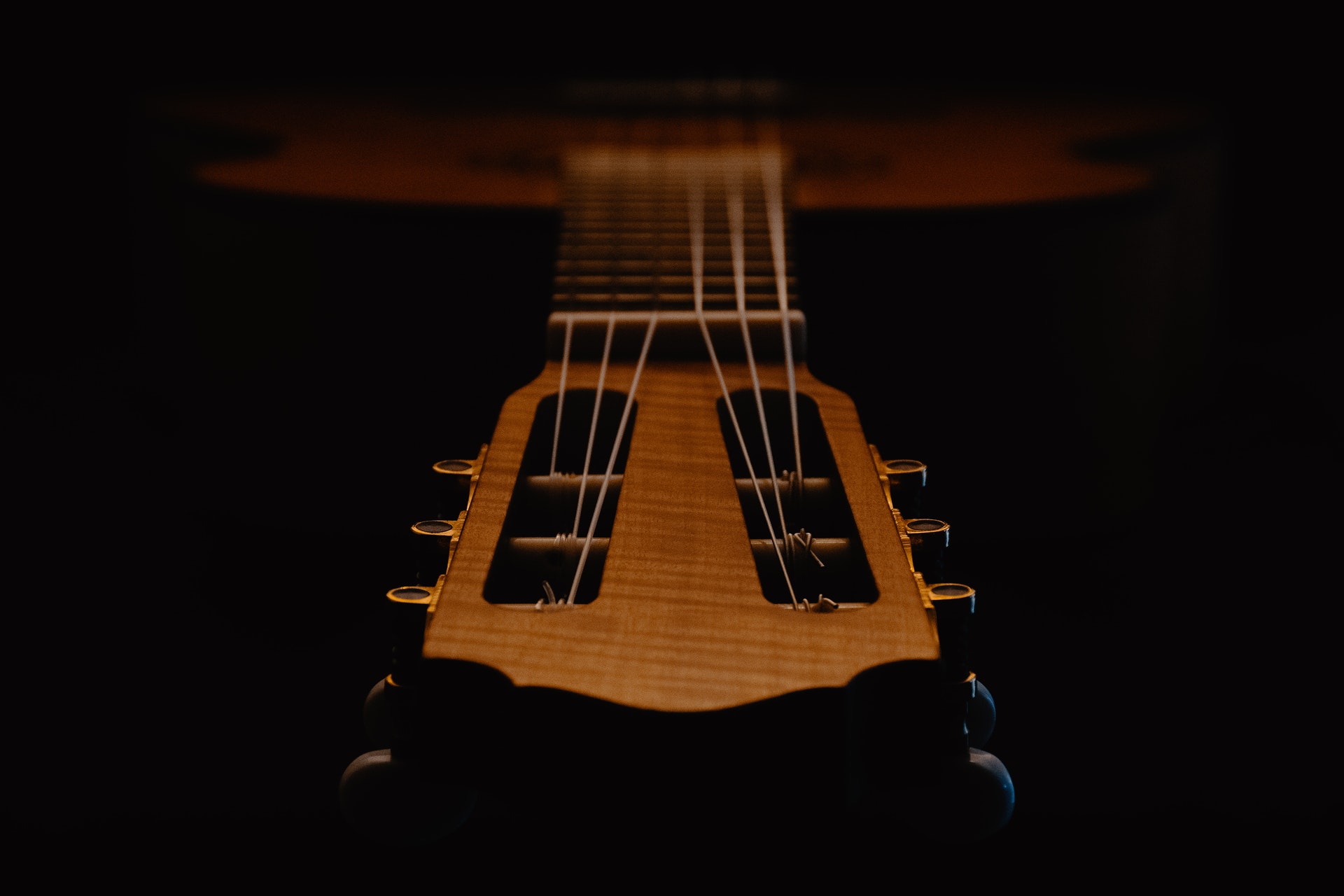Is Classical Guitar Harder Than Piano?
Are you trying to settle a debate or have trouble deciding between classical guitar or piano? This is your article whether you’re looking to flex on your friends or learn an instrument quickly. So, is classical guitar harder than piano?
The short answer is yes. The long answer is that classical guitar and piano are very different instruments with unique challenges. Learning one may be easier for one person and harder for another.
We’ll go into what makes instruments “hard to play” below.
Is Classical Guitar Hard to Learn?
If you’ve never picked up an instrument, classical guitar is challenging. On the contrary, learning classical guitar after playing an acoustic or electric guitar is more accessible. Let’s assume this is your first time with an instrument.
You should expect to spend (at least) a few years on the journey between strumming your first chord and becoming a classical guitar wizard. There’s a lot that goes into playing guitar. For example, you have to learn scales, chords, strumming techniques, etc. You’ll likely want to learn how to read sheet music for classical guitar.
As a beginner, it can get overwhelming. Fortunately, you can save yourself stress by learning one thing at a time. Here’s what it takes to learn classical guitar, in no particular order.
- Learning to fret strings
- Knowing how to play basic chords
- Mastering fingerstyle strumming
- Learning pentatonic scale shapes
- Building callouses
- Reading sheet music (optional)
Starting with a classical guitar can be frustrating, but keep at it! Before you know it, you’ll have the basics down.
Classical Guitar vs. Acoustic Guitar – What’s the Difference?
Before reading about the piano, you might be wondering, “what’s the difference between a classical guitar and an acoustic?”
Two things stand out. Number one, a classical guitar has nylon strings instead of metal. Classical guitar makers use nylon to replicate the sound of traditional gut strings (yes, gut). Consequently, classical guitars sound soft rather than twangy.
Number two is the strumming technique. An acoustic guitar is usually played with a pick. Using your fingers (or nails) is the standard technique for a classical guitar.
Is Piano Hard to Learn?
When it comes to getting sound out, the piano is elementary. You press a key. This probably influences why the piano is the most popular instrument to learn to play.
Despite the many bad experiences people remember from childhood, the piano is an easy instrument for beginners. However, the piano has a very high skill ceiling. Thus, it may seem that the more you learn, the harder it gets. Additionally, reading sheet music is a fundamental part of learning to play songs.
Ultimately, it’s easy and natural to play chords on the piano. But if you want to play like Mozart, be prepared to dump some serious effort. Learning to play the piano requires:
- Learning good posture
- Creating dozens of chords
- Developing hand independence
- Using the sustain pedal
- Building dexterity
- Reading sheet music (recommended)
Patience is vital when learning piano. Your fingers may not want to cooperate when playing bass and treble notes simultaneously. Fortunately, there’s an easy solution: repetition and time.
Classical Guitar vs. Piano
People can make a case for classical guitar being more complex. Likewise, someone else can declare that piano is more challenging. Chances are, both arguments are valid.
So, why might someone say one is more complicated than the other? Let’s look at what both sides might say.
Why Classical Guitar is Harder Than Piano
Classical guitar is more challenging to play than the piano for many reasons. “What reasons?” you ask? Let’s get into why people say classical guitar has a steeper learning curve.
Reason 1: The notes all look alike
It’s easy to find notes on the piano. D is always between two black keys. F-sharp is always the first black key in a row of three. But on the guitar, every fret looks like a fret. It takes time to figure out where the notes are relative to one another. Once you get the hang of it, you may need to retune your guitar to play a different song. Now you have to learn the notes all over again!
Reason 2: You need callouses
A dainty child’s fingers are enough to dominate a piano keyboard. However, classical guitars take strength to fret. It is only through the pain of forming awkward chord shapes that your fingers blister to adapt to brutal conditions.
If you face pain playing the piano, you’re doing something wrong. If you encounter pain learning guitar, you’re doing something right.
Reason 3: You need to grow your fingernails
Because classical guitarists often refrain from using picks, you’ll have to improvise. If you’re as passionate about classical guitar as Francisco Tárrega, you’ll need to grow your fingernails.
However, you can’t just stop trimming them and call it a day. It would be best to treat your fingernails as your most valuable asset (which they will be). This means regularly filing, cleaning, and protecting them from harm at all costs.
Reason 4: It’s harder to get sound out
All you need to do to play the piano is press keys. However, it takes technique plus trial and error to get a clean note from the classical guitar. Specific chord shapes on a classical guitar are incredibly unnatural.
Lastly, sounding a note requires fretting a string and strumming/picking it. There is just one step with the piano: hit the note, and sound comes out.
Why Piano is Harder than Classical Guitar
While the classical guitar is initially challenging, the piano is a more difficult instrument to master. There are 88 keys, and a realm of classical music people want to hear you play. You have to pour a lot of time into the piano to become truly skilled.
Reason 1: You need to be able to play two melodies simultaneously
Piano players must be able to play bass with their left hand and treble with their right. Consequently, you must learn to make each hand act independently, which is easier said than done. This also means you must keep track of two distinct melodies without jumbling them together.
Sorry, there’s no such thing as a “bass pianist” to help you out.
Reason 2: You can’t skimp on sheet music
While you can play by ear on the piano, this isn’t easy with complicated melodies. A classical guitarist could “cheat” by looking at tablature, but a piano player is expected to know sheet music. Therefore if you start learning piano, people will expect that you have this skill.
You must learn to read as fast as you plan to play. If your mind can’t keep up, neither can your fingers.
Reason 3: There’s more competition/pressure
The piano is the most commonly learned instrument. Your grandma can play, and it’s likely that at least one person in your friend group can, too. If you want to impress people, you need to play exceptionally well. This means devoting time to the craft, learning how to arpeggiate like a god or goddess, and developing heroic speed.
With classical guitar, simply knowing how to sound decent is enough for someone to say, “cool.”
Reason 4: Black keys
If you need to switch keys from “F” to “G” on classical guitar, you slide down two frets and play the same scale pattern. Hitting the keys on the piano is trickier because black keys are confusing. While they represent sharps and flats, they require you to change your relative finger position to accommodate them.
Not every scale can be like C Major and A Minor.
Overview
| Classical Guitar | Piano | |
| Why it’s harder | Playing a note requires more actions Requires more finger strength Notes harder to find | Must play bass and treble notes simultaneously Black keys may confuse beginners Expectation to read sheet music |
| Why it’s easier | Scales keep their shape at different keys You only need to play one melody The slightly lower skill ceiling | Making music is as easy as pressing a key Notes are easy to find Less tiring on wrists and fingers |
| Summary | A higher initial learning curve, but it gets easier | Easier to learn, harder to master |
Conclusion: Classical Guitar is Harder than Piano
This decision wasn’t easy. Ultimately, learning any instrument takes considerable skill and dedication. Mastering either piano or classical guitar is worth bragging about.
However, the classical guitar is slightly more challenging for beginners. It would be best to learn the mechanics of fretting, finger strumming, and plucking before you start playing chords. Thus, many folks will have a less frustrating experience with the piano.
Just make sure that you go with your heart. If the classical guitar is calling your name, answer it! You’ll get the hang of it sooner than you think. Likewise, don’t neglect the allure of the piano keyboard if you’d like to be challenged. The high skill ceiling of playing piano will push your limits for years to come.









